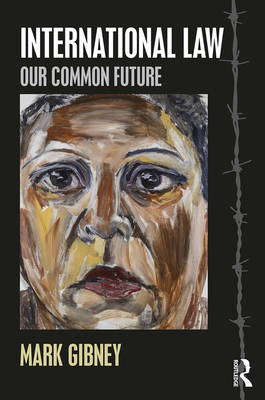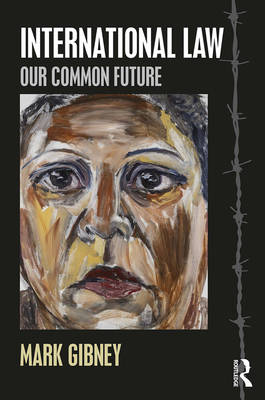
- Retrait gratuit dans votre magasin Club
- 7.000.000 titres dans notre catalogue
- Payer en toute sécurité
- Toujours un magasin près de chez vous
- Retrait gratuit dans votre magasin Club
- 7.000.0000 titres dans notre catalogue
- Payer en toute sécurité
- Toujours un magasin près de chez vous
Description
International Law: Our Common Future offers a dynamic approach to the study of international law that actively engages students in ways that more traditional textbooks do not. One way this is achieved is by focusing on recent events, including international terrorism, extraordinary rendition, the legality of drone strikes, environmental devastation, and human rights. Another is by having students wrestle with actual court rulings rather than being given short summaries of these decisions. These cases, which are from a wide array of international, regional, and domestic tribunals, are followed by a series of provocative and challenging questions and prompts that will naturally lead to classroom discussion and debate.
The book recognizes the importance of visual media in terms of student learning. In addition to photographs of individuals and events that feature prominently in the development of international law, each chapter has sections entitled "International Law at the Movies" which highlight feature films and documentaries that explore the topic at hand.
What students will quickly come to realize is that international law is not a distant and abstract entity, but rather, is intimately connected to various aspects of their daily lives. The book shows some of the remarkable changes in international law, most notably the declining importance of the role of the state. As a final point, the book is written in an engaging, almost conversational, style that is accessible to students in a wide array of academic disciplines.
FEATURES OF THIS INNOVATIVE TEXT
This book is specifically designed to appeal to student interest, to promote active learning, and to integrate carefully edited court cases with explanatory text. Here are just a few of the features devoted to achieving these goals:
- Boxed text highlighting current events
- "International Law at the Movies" boxes
- Photos illustrating key moments and figures in international law
- Cases carefully edited and set off from the main text
- Notes and Comments following court case excerpts
- References for each chapter divided into key types of sources including Books and Articles, Reports, Agreements, and Cases (international, regional, and domestic tribunals)
- Glossary of key terms putting terms in context with events
- Filmography
- Table of Cases with links to original sources
A NOTE ABOUT THE COVER ART
Title: "María, inside since April 14, 2014"
Artist: Ben Betsalel
The cover image is from a prison project in Colombia, "Human Beings Inside and Outside," done in collaboration with the International Committee of the Red Cross (ICRC).
Spécifications
Parties prenantes
- Auteur(s) :
- Editeur:
Contenu
- Nombre de pages :
- 434
- Langue:
- Anglais
Caractéristiques
- EAN:
- 9781138104457
- Date de parution :
- 02-12-19
- Format:
- Livre relié
- Format numérique:
- Genaaid
- Dimensions :
- 152 mm x 229 mm
- Poids :
- 999 g

Les avis
Nous publions uniquement les avis qui respectent les conditions requises. Consultez nos conditions pour les avis.






